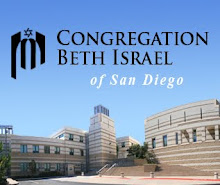"The Eternal One spoke to Moses, saying: When a person sins and commits a respass against the Eternal--by dealing deceitfully with another in the matter of a deposit or a pledge, or through robbery, or by defrauding another, or by finding something lost and lying about it; if one swears falsely regarding any one of the various things that someone may do and sin thereby--when one has thus sinned and, realizing guilt, would restore either that which was gotten through robbery or fraud, or the entrusted deposit, or the lost thing that was found, or anything else aobut which one swore falsely, that person shall pay the principal amount and add a fifth part to it. One shall pay it to its owner upon realizing guilt. Then that person shall bring to the priest, as a penalty to the Eternal, a ram without blemish from the flock, or the equivalent, as a reparation offering. The priest shall make expiation before the Eternal on behalf of that person, who shall be forgiven for whatever was done to draw blame thereby" (Lev. 5:20-26).Much of Sefer Vayikra, the Book of Leviticus, is concerned the ancient Israelite sacrificial system. We learn what kind of animals were used, when to bring your crops, what happens if you can't afford an expensive animal, what you burn first, what you eat, what you do if the sacrifice is to make teshuvah for a sin, etc. The Hebrew word that we translate as "sacrifice" is korban, actually means "something brought near." Sacrificing livestock or a crop was our ancestors' way of experiencing the closeness of God.
Sefer Vayikra sets up a system that is meant to symbolize the world as it should be. As bible scholar Tamara Cohn Eskenazi writes, "Leviticus reflects the perception that God's created world is fundamentally harmonious, good, and orderly (as in Genesis 1). To preserve God's orderly world, where everything has an assigned place, Leviticus specifies what must be done whenever boundaries are wrongfully crossed, be they boundaries of the body, time, or space--such as between sacred and non-sacred, or between life and death. In this book's worldview, anyone who breaks God's ordained harmony can--and must--repair it. Rituals, including sacrifices, serve to cancel or neutralize damage done to the created order and thereby restore the equilibrim."
This brings us back to the quote from the parashah. The last few verses of this week's reading talk about the social and economic order. (Wall Street should probably read the Bible.) Economic sins against each orther are seen as sins against God. The Israelites' camp, a microcosm of the world, is supposed to be just. God demands it, and we are God's agent in carrying it out. God is the the third party in our business dealings.
To those who say that contemporary American Judaism's focus on social justice work as a religious obligation is new, you should study our texts. True, in the past, for Jews social justice was carried out in the Jewish community, but, I think, that is because Jews were generally not integrated into the wider society. But, since modern times, in the Western world where Jews have had greater integration, we have statements about social justice based on Jewish tradition and texts, not just liberal politics. In 1885, a group of Reform rabbis wrote in what came to be called the Pittsburgh Platform, "In full accordance with the spirit of Mosaic legislation, which strives to regulate the relations between rich and poor, we deem it our duty to participate in the great task of modern times, to solve, on the basis of justice and righteousness, the problems presented by the contrasts and evils of the present organization of society." The Reform Movement in America was founded with the idea of text based social justice. Social justice like Sefer Vayikra talks about--creating a harmonious society. Fighting the root causes of injustice, not just giving to the poor to help them out.
A related aside: Glenn Beck is telling his minions to leave their churches if "social justice" is one of their missions.







No comments:
Post a Comment